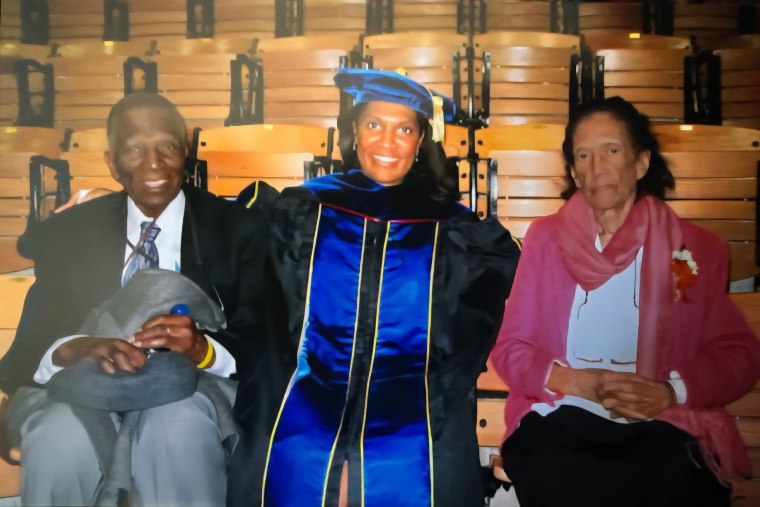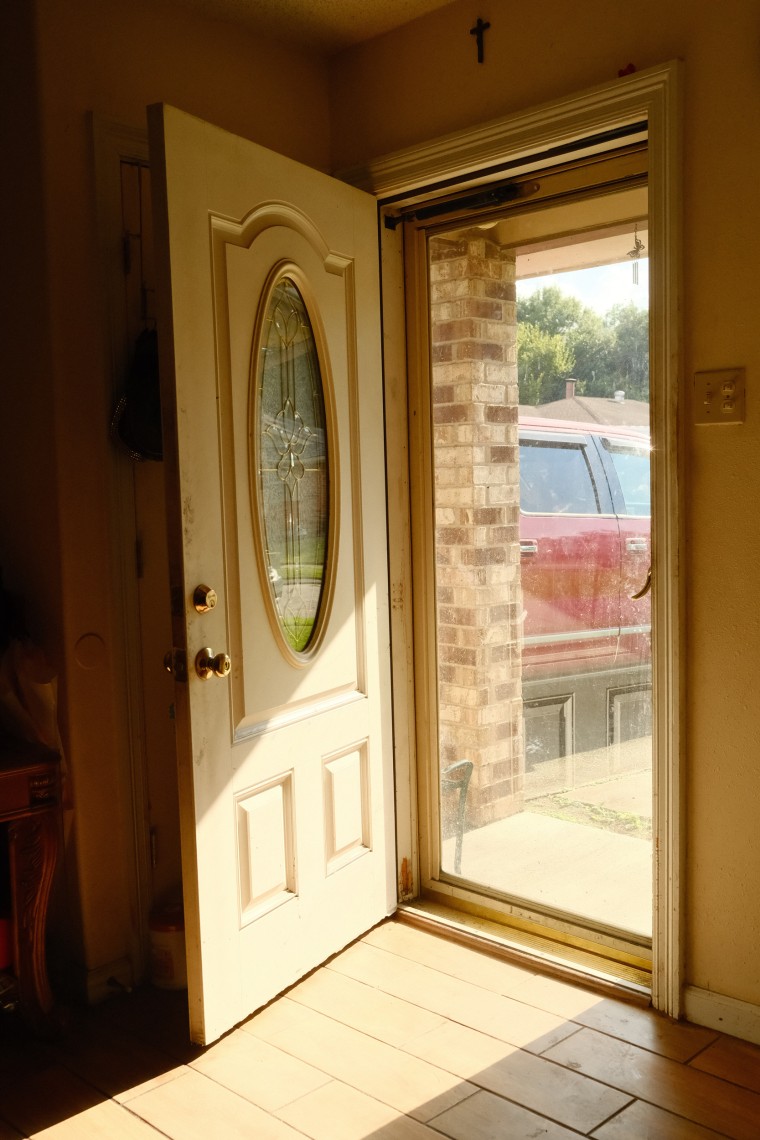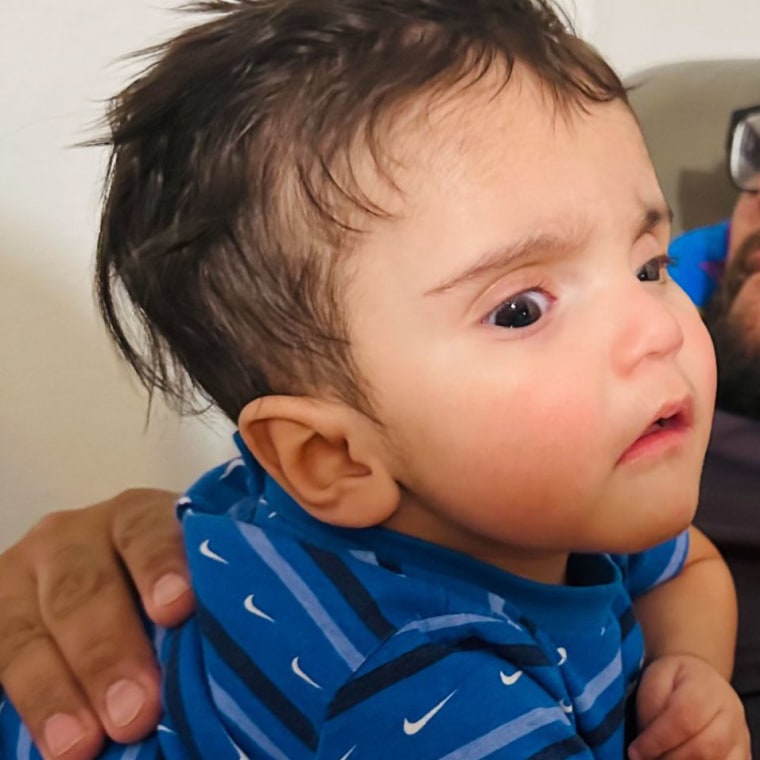Hurricane Katrina survivors remember the acts of compassion that saved them 20 years ago

“I was blown away,” Rodney said. “So, when I think about that time, it’s complex, because not only did I experience the horrors of the moment, I didn’t experience as much as many others. And so, there’s a sense of feeling guilty about it because I wanted to help as well. But I was heartened by little acts of kindness and big acts of kindness I saw all along the way.”
Rodney and his family eventually relocated to Houston and he opened a firm there. But he kept the New Orleans office open, too.
While Rodney was able to weather the storm with family members, Roxene Thompson Kastens could not get through to her beloved grandparents, both in their 80s, or their 101-year-old cousin. They went missing after being convinced at the last minute to abandon their home and retreat to the Superdome.
For two days, “everything went black; no communications,” said Kastens, a New Orleans native who lived then and still lives in the Washington, D.C., area.
“I was panicked,” she said. She had been working on her dissertation for a doctorate, put it aside and headed to Houston, where her grandparents were eventually found by her best friend at a convention center.
Kastens recalls being in Houston and resting her head under her grandfather’s arm as they watched the unthinkable devastation of their home town on TV.
“He said, ‘Baby, I don’t think I’m ever going back home again,’” Kastens recalled. “His tears poured from his eyes onto my face.”
So much was lost, including the symbol of her grandfather’s bravery during World War II. In 1944, Willie Wesley Thompson, a Navy seaman, saved two lives in the South Pacific. One was a sailor who went overboard and nearly drowned. The other was a sailor who had fallen between two ships while disembarking one and boarding another. Instead of being honored, he was dishonorably discharged when those he saved contended he had tried to drown them.

A chance meeting with a young Black Naval officer decades later resulted in him researching Thompson’s case. “He found two of the men he saved and they admitted that he had saved them,” Kastens said.
This ultimately led to Thompson’s reinstatement into the Navy after 60 years. He was then honorably discharged, with countless salutations and medals for his heroism.
All those medals, commendations and a folded American flag were lost in the hurricane. “He kept all that stuff under the couch so he could pull it out when people came over,” Kastens recalled.
But after Katrina, the Joint Chiefs of Staff and the Secretary of the Navy invited Thompson to the Pentagon.
“They took him into a little room and gave him a box,” Kastens said. “It had all the medals and honors that were lost in Katrina. It was an act of kindness that softened the devastation of Katrina. It meant everything to him — to all of us.”
Thompson died in 2007 at 89. His wife passed years later. Their cousin died four months after the hurricane at 102.
“Katrina really took a toll on older people,” Kastens said.

As for Lakeita Williams, the pregnant woman who was saved by a canoe, the toll of Hurricane Katrina is lasting but it has not stopped her or her family. Her son, Tavis, is now 20 and her daughter, Treazure, whom she was carrying in 2005, is a sophomore thriving at Spelman College in Atlanta. Out of Williams’ experience came a book, “Heaven Responds,” where she recounts how her prayers and the acts of others carried her and her family through.
“When we got to dry land after the canoe, a young Black man took us as close as he could to the Superdome,” Williams said. “Everyone wanted a ride, but I think because I was pregnant, he chose us. He wanted to protect my unborn child.
“That’s the kind of thing that you don’t forget and you’re grateful for,” she said. “From there, we were able to get some help, get to a friend’s house and clean up some and then get a bus to Baton Rouge. So, without the help of others, no telling how our story would have ended.”





